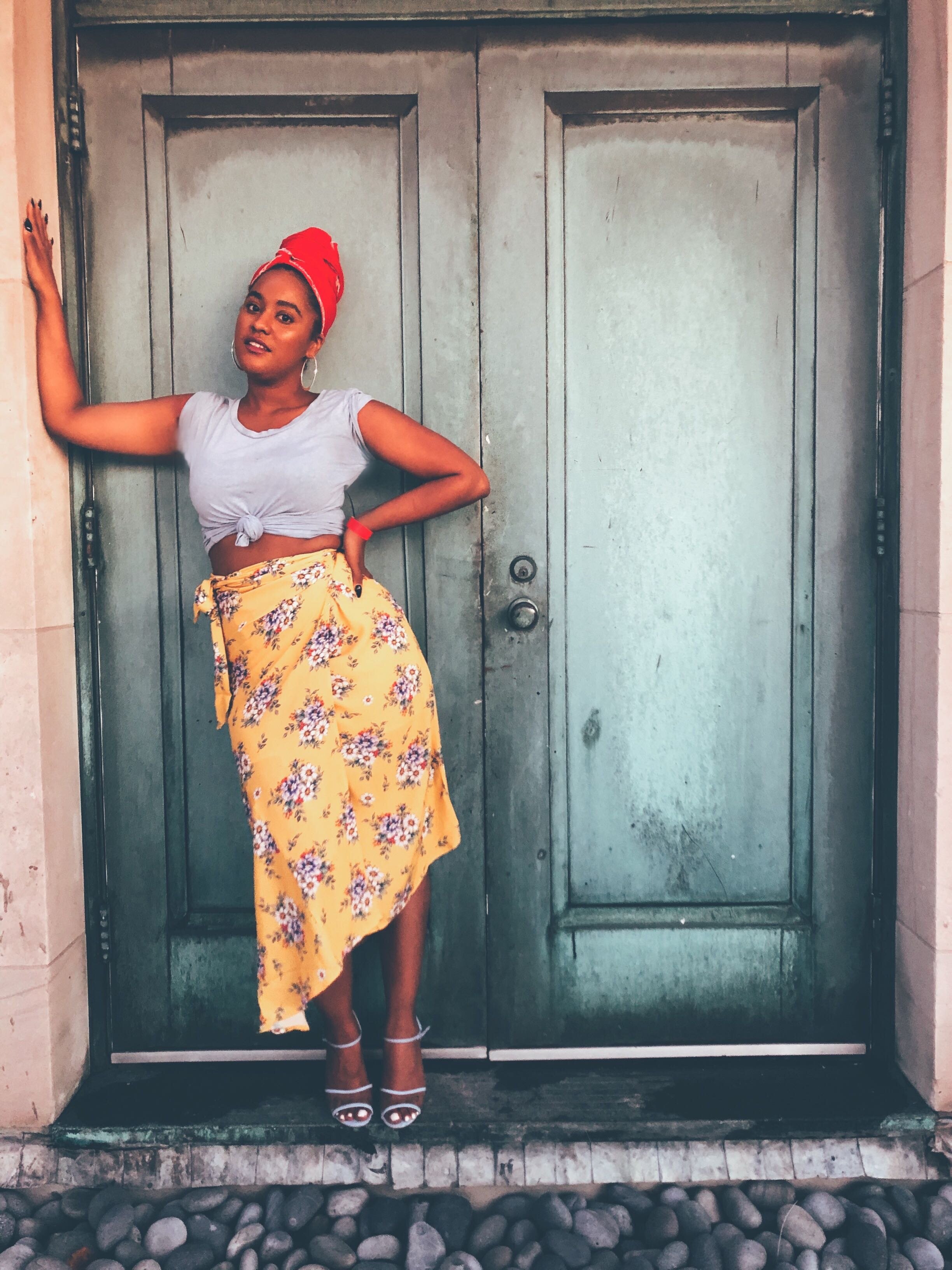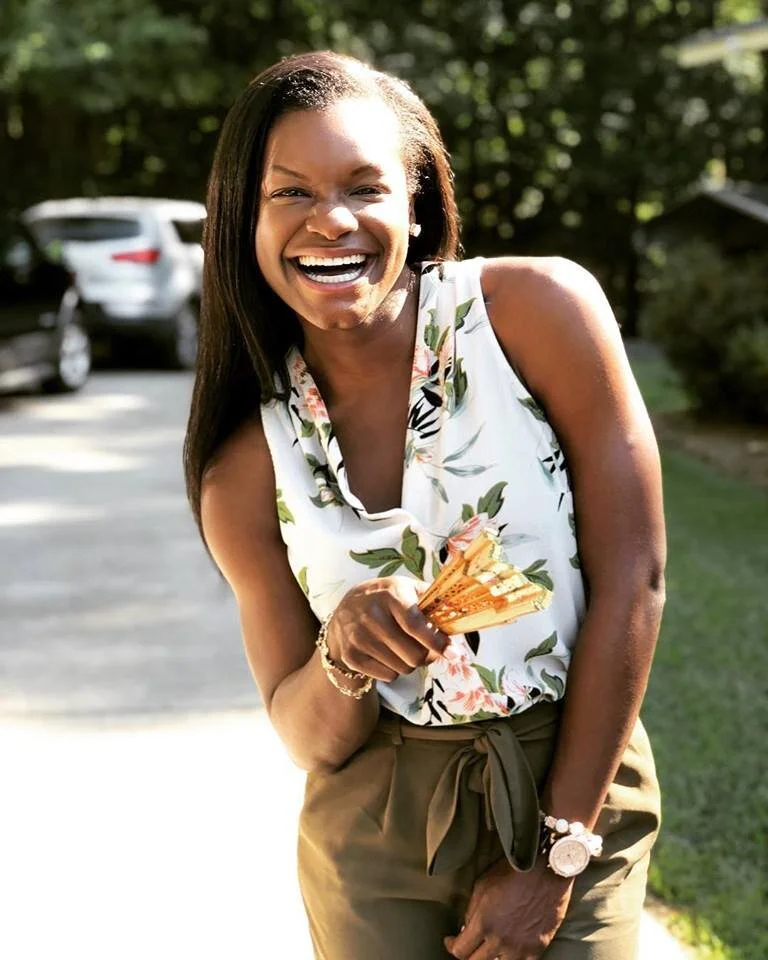Ashley Mitchell, Marketing and Publishing Professional
Hey, Ashley! Let’s start with a basic question: what do you do?
I work at Hearst, and my official title is senior manager of growth. Hearst is a huge media company. I do the paid marketing across the Hearst Product Studio, which is part of the larger Consumer Revenue and Partnerships Team. The goal there is to increase the conversations we’re having with subscribers and readers. We have all this data from people who are subscribing and we know things about them based on polls they’ve done, and the goal is to offer them products that will increase loyalty to the brand.
Can you share a little more about your time at Hearst?
When I joined, Hearst products was in its infancy. At first, we produced a yoga mat, which was my first big project. We developed it based on information we received about our health brands. It’s a high-tech mat, and easy to roll up. So we created this mat that is tied to our wellness brands. Now we are in the process of diving into individual verticals like Delish, and we’re creating a series of cookbooks with them. The cookbooks are focused on things people are loving right now, like the keto diet. We created the All Out app, where our different wellness brands are creating fitness content, and these are trusted brands for our readers and subscribers.
For my role, I do all of our paid marketing, through strategy to execution. I also assist the product team, providing recommendations based on market research and feedback from customers. How people respond to products on our paid marketing channels, such as Facebook, Digital Display, or Apple News Plus, helps to inform future product development.
How did you get into this space?
I had a very nontraditional path. I was pre-med in college. I wanted to be a pediatric reconstructive plastic surgeon. Then I got to college, and I had so much anxiety around my major. I hated my classes and wasn’t attending, and I wasn’t doing well academically. I was having this crisis at 18 years old because I thought I had known what I wanted to do.
After my freshman year, I was suspended for half a semester. My grandparents lived in Michigan, so I went to community college up there to stay up to speed during the suspension, so that I would be caught up when I went back for my sophomore year. I liked all of my psychology classes, and so when I returned to Syracuse, that’s what I majored in.
Then later, going into my senior year, I experienced anxiety and depression. I didn’t have a support system, and I didn’t know how to deal with my mental health, so I didn’t do well and was suspended again. This time it was a one-year suspension. I came back to New York City and did internships in fashion, with Yumi Kim and Showroom 7 working on their e-commerce platform. I managed the back-end doing customer service, and eCommerce management, which included fulfilling orders, managing inventory, working with the development team for site maintenance, and visual merchandising. I fell in love with writing emails, curating inventory, talking to customers and learning what they like, and making suggestions to them that they would then buy. When I went back to school for my senior year, that’s when I focused on retail management.
What did your post-college experience look like?
My first job out of college was at The Hoodie Shop. I was there for two years and I loved that job. Eventually I left and went to Book of the Month, which considers itself a publishing and media company. When I went there, I took a step down from my previous role, starting as assistant marketing manager doing digital and print and working on our legacy brands. I moved up to marketing manager and took over all of our email marketing and Instagram story marketing.
Last year I chose to leave Book of the Month because there was a change in leadership. Two white men from Wall Street who didn’t really love books and publishing suddenly became the head of the company. There was just a lack of soul to the way they worked. I started to get a lot of anxiety going to work. And there were specific things that happened. For example, when my grandmother passed away, they were really callous about it. Just four days after she passed, I was back at work and being berated for mistakes. It just got to be too much. And I liked my coworkers -- they were great -- but it just wasn’t the right type of environment anymore.
I started at Hearst last year. The change has been a complete 180. My boss is a man of color, and he’s super awesome. There are lots of brown and black people on my team which isn’t reflective of my company, but I think it’s reflective of my team’s leader and his values.
What do you really enjoy about working at Hearst?
It’s a culture thing. It’s a work hard-play hard type of place. There’s a great work-life balance. It makes me feel good knowing that if I need to take a day off to go to the doctor, it isn’t frowned upon. My boss isn’t checking for me when I come in and when I’m leaving. All that matters is whether I do my job. I have the ability to get into other things I’m curious about, as well. I started writing with the magazines, and I wouldn’t have had an “in” if I didn’t work there. It’s kind of a business-savvy move on their part because they don’t have to pay me. (laughs) But it’s also a step up for me.
There have been some challenges. We started affinity groups. There is the black group, a women’s group, a queer group, and an ally-specific group for white people figuring out how to use their privilege to advocate for others. Our new head of human resources is a black woman, which I appreciate. But once the affinity groups were created, I felt like some people in leadership positions felt as though that was enough. There’s so much more to doing the work than creating a group where we go have drinks and hang out. We need to be discussing hiring pipelines, recruitment of black and brown interns, developing mentor programs, hosting panels, encouraging advocacy, doing charity. There’s no budget at the moment, though, which definitely informs why some of our ideas are being shut down. And we have white representatives for the black affinity group, and I wonder if that’s why they may be less understanding of what we’re seeking, and what we need them to advocate for. It can feel as though they think we’re asking for too much. We want to do things that are making real changes in the lives of black people who work there, and future employees.
Why do you feel you’re uniquely suited to do what you do?
I have a subscription background, and a book publishing background. A lot of what we’re doing is creating retention and loyalty, and really getting people to purchase products. They didn’t have that unique skill set before I joined because the company is very media-centric and focused on clicks and likes, not necessarily dollars and cents. So my background was desirable to them, as well as having worked in a small business because the subsidiary where I work is also small.
I also feel that being a brown and black woman means that I bring a unique voice because we want our products to appeal to a broader audience. I can use my insights to ensure we’re accurately represented, and that there are fewer missteps in what we do and what we produce. I had a meeting with the entire consumer revenue and partnerships team, and shared that we’re missing opportunities in regards to black consumers. As an example, we’re not tapping into black travel which is a billion-dollar business.There’s so much space for that kind of content, but we continue to appeal to the masses -- and the masses are white. I bring the experience of being someone seeking content tailored to me, and being able to know that there are all these conversations that they aren’t tuned into, but need to be aware of.
What about the future excites you?
I’m excited to hone in on my skills. I didn’t come into this with a traditional marketing background so I’m considering grad school. I like to learn and do research, so a big part of me just wants to keep learning more and more. Right now, I’m in the weeds when it comes to paid marketing and what that looks like and feels like. I know that I want to be a vice president before I turn 40 so I’m finding the right steps to get there.
Also, I’ve used the connections I’ve made at Hearst to get into sensitivity readings, which entails reading authors’ manuscripts and checking them for biases against black and brown and LGBTQ people. Being first generation, Afro-Latina, and a woman, I can come in with many different perspectives. That’s a skill I’d like to be able to build out.
I would also like to do more traveling, possibly with Hearst. I’d love to be able to talk about travel, specifically through the lens of a black person. And, just generally, I’d like to push for more black representation at the company. I do feel that I have the right support system to have those conversations and not get shut down. I can step up and feel comfortable doing it. I’d like to continue using the Hearst Black Culture affinity group to do more, and make a bigger impact on who makes decisions. Who is in the boardroom? Who is writing articles? Who is marketing the articles? Those people should look like us. I definitely want us to do a mentoring program. We have so much influence as a group because we can stay on top of leadership and hold them accountable. For areas where they might be falling short, we can help them come up with a plan. So I’m excited to be a part of that, as well.
Please share this post with a friend, and follow us at @BlackWomenWorkIG!


